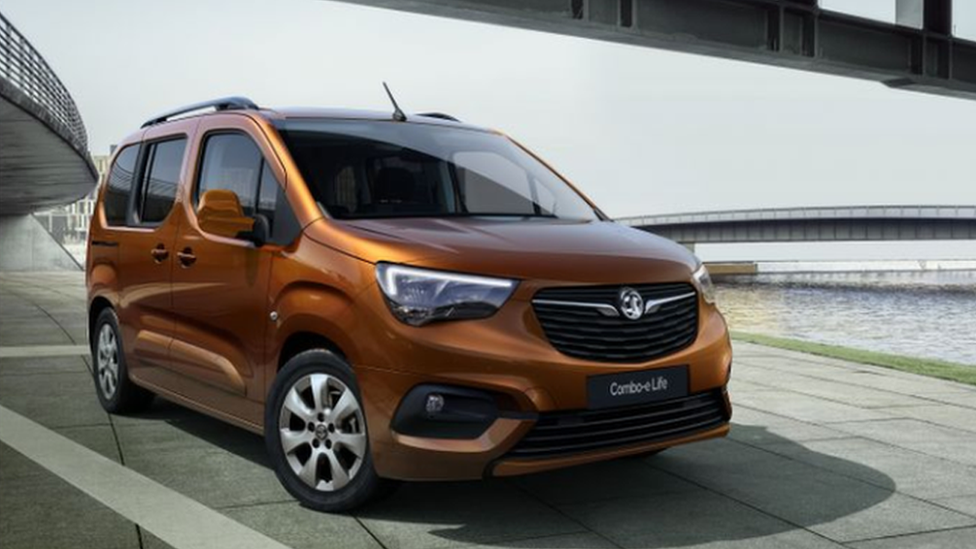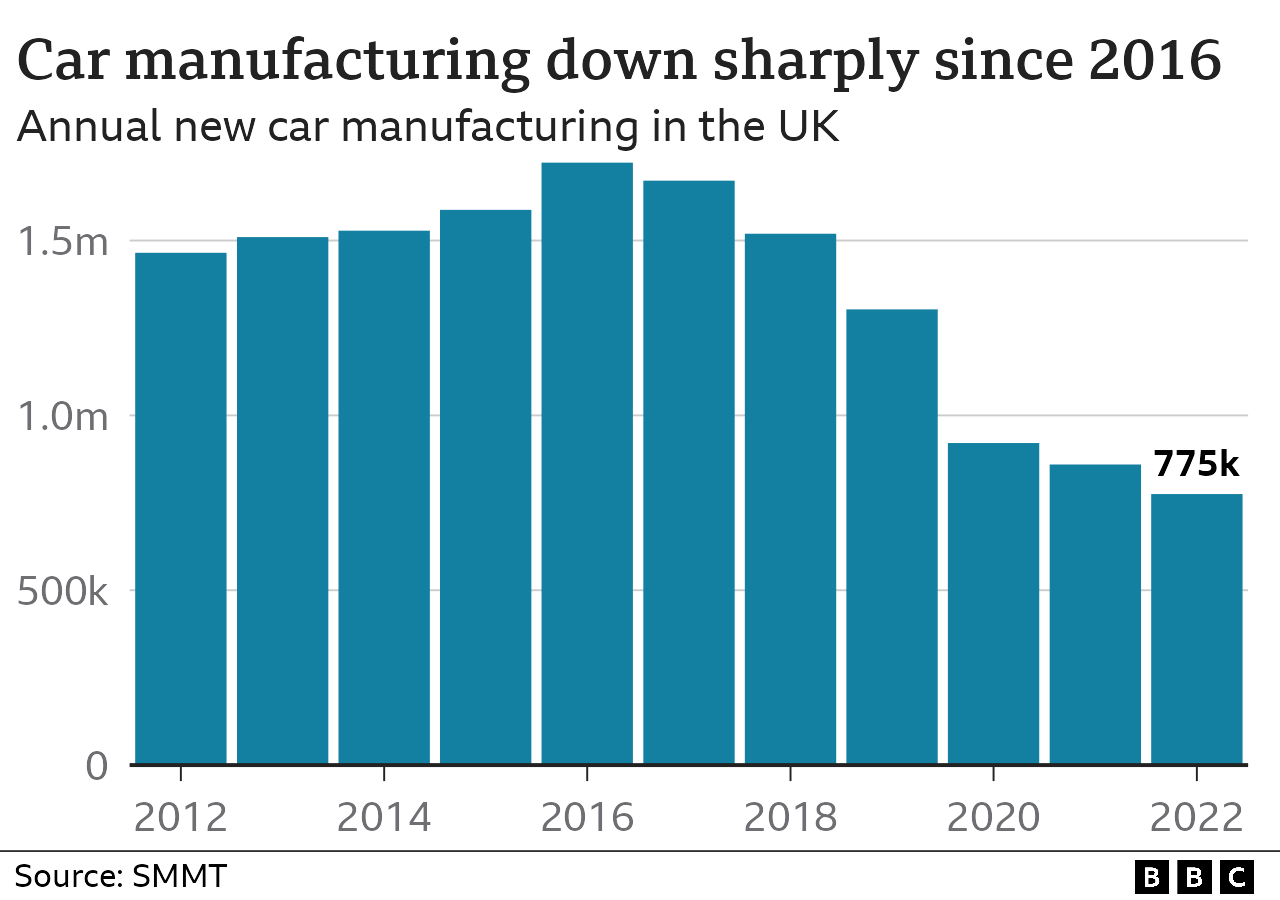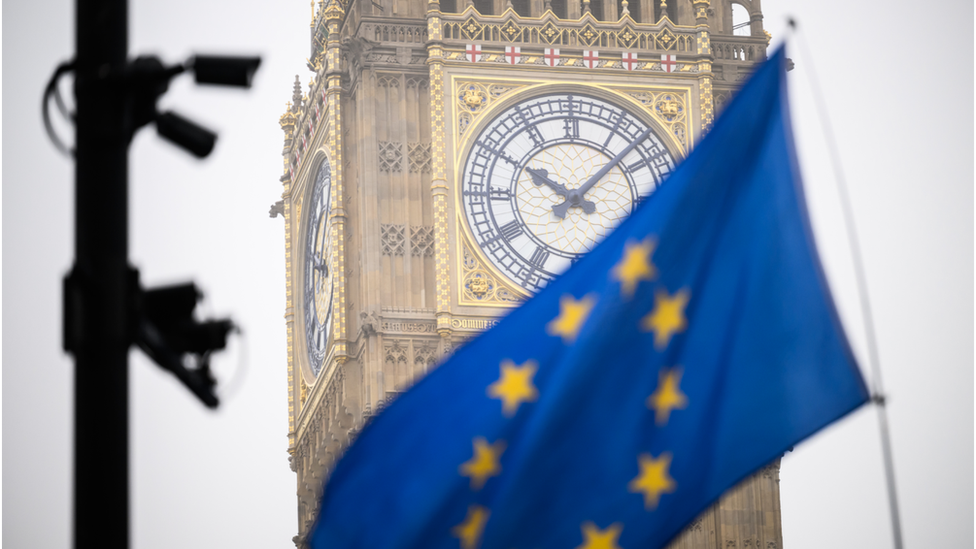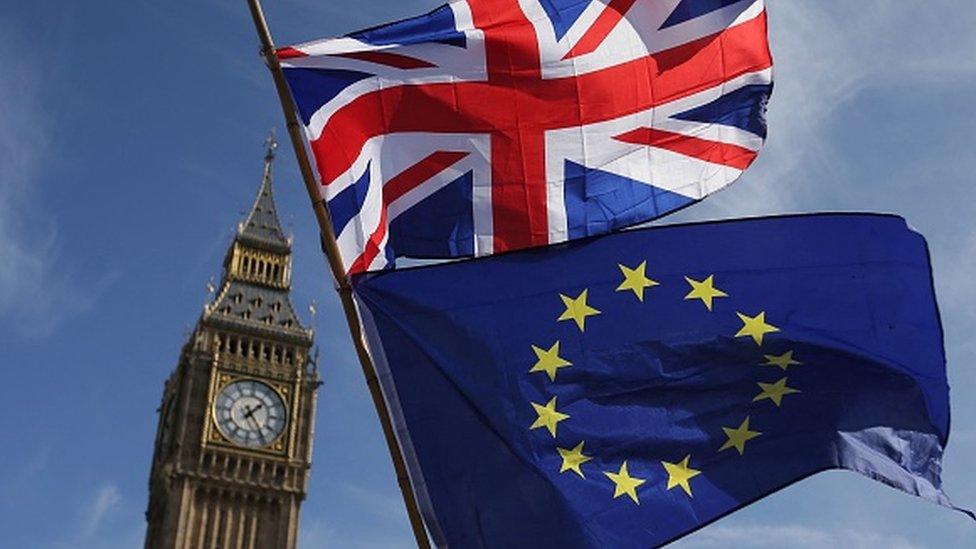Vauxhall-maker warns Brexit may force it to close UK factory
- Published
- comments

One of the world's biggest carmakers has warned it may have to close UK factories if the government does not renegotiate the Brexit deal.
Stellantis, which owns Vauxhall, Peugeot, Citroen and Fiat, had committed to making electric cars in the UK, but says that is under threat.
It warned it could face tariffs of 10% on exports to the EU due to rules on where parts are sourced from.
In response to the comments, Rishi Sunak said he believed in Brexit.
"I voted for Brexit, I believe in Brexit," the prime minister told reporters while travelling to the G7 Summit of world leaders in Japan.
Mr Sunak cited what he called "Brexit benefits" he introduced as chancellor and reforms to retained EU law which he said would save business a billion pounds a year.
He did not directly address concerns made by Stellantis, but a spokesperson said the government was "determined" UK car making would remain competitive.
It is the first time a car firm has openly called for a renegotiation of the terms of the Brexit trade deal, and the BBC understands all major manufacturers in the UK have raised similar concerns with government.
Stellantis warned that if the cost of electric vehicle manufacturing in the UK "becomes uncompetitive and unsustainable, operations will close".
The car giant called on ministers to come to an agreement with the EU to maintain the status quo until 2027, with a review of arrangements for manufacturing parts in Serbia and Morocco.
Labour's Sir Keir Starmer said the country needed "a better Brexit deal" to ensure firms such as Vauxhall could continue operating in the UK.
Sources said Business and Trade Secretary Kemi Badenoch had a "constructive" virtual meeting with Stellantis on Wednesday, with them "cautiously optimistic" after conversations with the EU which recognised a deal was in both parties' interest.
Just two years ago, Stellantis, which is the world's fourth biggest car maker, said the future of its Ellesmere Port and Luton plants was secure.
But the firm told a House of Commons inquiry the current trade rules posed a "threat to our export business and sustainability of our UK manufacturing operations".
From next year, 45% of the value of an electric car should originate in the UK or EU to qualify for trade without tariffs. This will rise to 65% in 2027.
Stellantis said it was "now unable to meet these rules of origin" due to the recent surge in raw material and energy costs.
If the government cannot get an agreement to keep the current rules until 2027, exports of its UK-made cars "would be subject to 10% tariffs" from next year, it said.
This would make the UK an uncompetitive place to manufacture cars compared with Japan and South Korea, it added.
"To reinforce the sustainability of our manufacturing plants in the UK, the UK must consider its trading arrangements with Europe," Stellantis said.

A government spokesperson said ministers will take "decisive action" to ensure future investment in the industry but Labour said car makers had been let down by a "government in chaos".
'Running out of time'
Trading rules around electric cars were one of the very last issues settled in the Brexit negotiations in 2020.
But Stellantis warned the current rules meant manufacturers could relocate abroad, pointing to BMW's decision to make its new electric Mini in Germany and Honda's closure of its plant in Swindon.
Along with trade barriers, a core problem remains the lack of electric car battery plants in the UK, when compared with the US, China and EU which are pouring subsidies into electric car making.
Former Nissan executive and battery start-up businessman Andy Palmer said the UK was "running out of time" to develop its own battery manufacturing industry.
Gigafactory
Earlier this week, French President Emmanuel Macron hosted Tesla's Elon Musk, who hinted he might invest in a battery plant - or gigafactory - in France.
Meanwhile, the Spanish government is currently trying to woo the UK's biggest car manufacturer, Jaguar Land Rover, into building a gigafactory in Spain.
With the rules due to tighten again in 2027 experts believe UK exporters will find it impossible to sell cars overseas tariff free unless they can source batteries domestically.
Related topics
- Published11 May 2023

- Published25 April 2023
